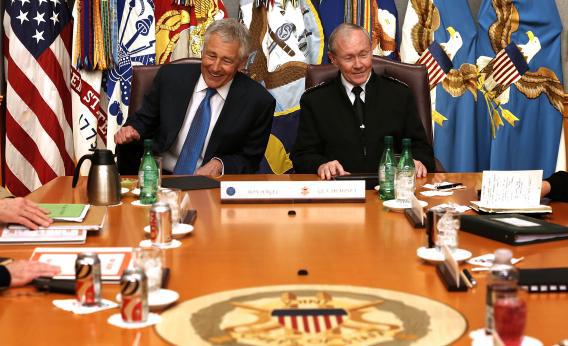The annual AIPAC policy conference is wrapping up now, and I’ve escaped the hypertrophied Washington Convention Center with this report. Is there anger about AIPAC’s refusal to oppose Chuck Hagel’s nomination? Some, sure. But the rank-and-file understand the long game, and think that ducking the fight shored up AIPAC’s credibility in its day-to-day lobbying.
The anger spilled out from AIPAC donors, and it was channeled in pro-Israel punditry. “Had the American Israel Public Affairs Committee opposed Hagel publicly,” wrote Washington Post blogger Jennifer Rubin in her 73rd and final post chronicling the nomination, “I do not think he would have been confirmed.”
But AIPAC rank and file have moved on. “I was not happy about Hagel, but a lot of people are saying that he’s going to be different than what he used to be,” says Shoshana Marcus. “Israel produces a lot of technology. The United States gives the means to produce it. Someone like Hagel, he’s going to learn that aiding Israel is to the United States’ benefit. Is President Obama always pro-Israel? No. I don’t think so. But he does the right things.”
The Obama campaign’s message to Jewish voters—the ones who considered bolting over Israel—was basically, “Look at all we did to fund the Iron Dome missile defense system!” And that’s basically been grafted onto AIPAC, as the message of the conference and the proof of American-Israeli friendship.
